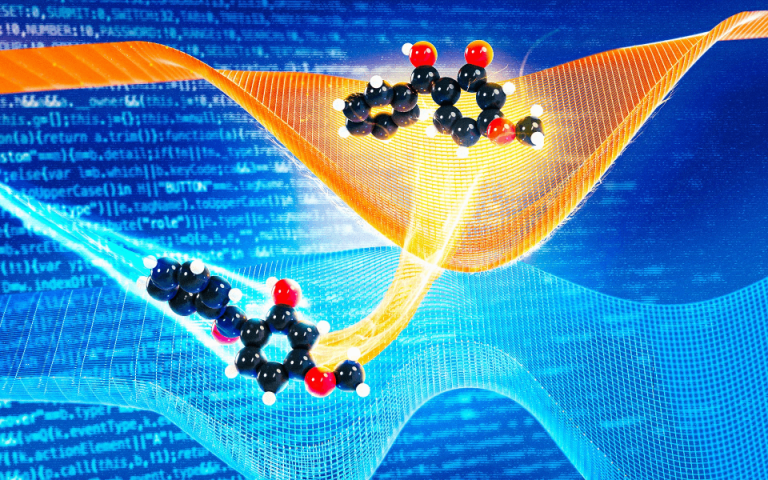Scientists receive funding to create a universal software for quantum dynamics simulations
26 October 2023
For the first time, scientists researching in the field of quantum dynamics (QD) will be able to access, develop and deploy a common software framework for simulations, removing many barriers that exist to achieving a deeper understanding across the quantum domain.

Scientists use powerful sources of light to study tiny particles, atoms and molecules, that make up the matter around us. These experiments can be used to answer important questions about how the motions of the particles manifest themselves in chemical reactions, material properties, and new quantum technologies.
To understand the results of the experiments, computer simulations are crucial. The computer-generated virtual model shows how these tiny particles move according to the rules of quantum physics. With QD simulations, researchers can thus predict and understand what's happening to molecules during experiments.
This is a new field of research, and most research groups use their own custom-made software for their studies. This lack of unification and integration makes it difficult to use ideas from one group to improve the methods of another group.
The new international project titled COSMOS, funded by the Engineering and Physical Sciences Research Council (ESPRC) and led by Professor Graham Worth (UCL Chemistry) will develop a new unified code for QD simulations suitable for use by both computational and experimental researchers.
This universal software will enable a wider group of scientists worldwide to use computer simulations to explore the quantum world more efficiently, and it will aid researchers across a broad range of research to understand state-of-the art experiments and exploit quantum effects by the design of new molecules and materials.
Professor Worth said: “I am very excited to be heading this international team. The project will be a big challenge and I am looking forward to seeing how we can combine our knowledge and ideas to provide a step-change in the way we can describe, visualise and exploit quantum processes.”
Professor Andrew Orr-Ewing (University of Bristol) commented: "New advances of the type offered by the COSMOS project are essential for the detailed interpretation of experimental data from ultrafast spectroscopy studies of photochemical processes important in the Earth’s atmosphere or in biological systems.”
“The COSMOS code will transform how we obtain new insights from our experimental results, and it will allow us to study ever more complex photochemical processes."
Furthermore, by supporting a large yet integrated cohort of early-career researchers, this programme grant will provide an enormous acceleration to developments in QD, positioning the UK as a global leader in this domain as we move from the era of classical computation and simulation into the quantum era of the coming decades.
Other Principal Investigators on the project are Dr Basile Curchod (University of Bristol), Professor Scott Habershon (University of Warwick), Professor Adam Kirrander (University of Oxford), Professor Tom Penfold (Newcastle University) and Professor Dmitry Shalashilin (University of Leeds).
Links
- Details of the grant
- EPSRC website
- UCL Chemistry
- UCL Quantum Science and Technology Institute
- Professor Graham Worth’s academic profile
- Dr Basile Curchod’s academic profile
- Professor Scott Habershon’s academic profile
- Professor Adam Kirrander’s academic profile
- Professor Tom Penfold’s academic profile
- Professor Dmitry Shalashilin’s academic profile
Image
- Computer code behind a molecule undergoing photoexcitation. Credit: Munro Passmore.
Media contact
Ingrida Bertasiute
i.bertasiute [at] ucl.ac.uk
 Close
Close

